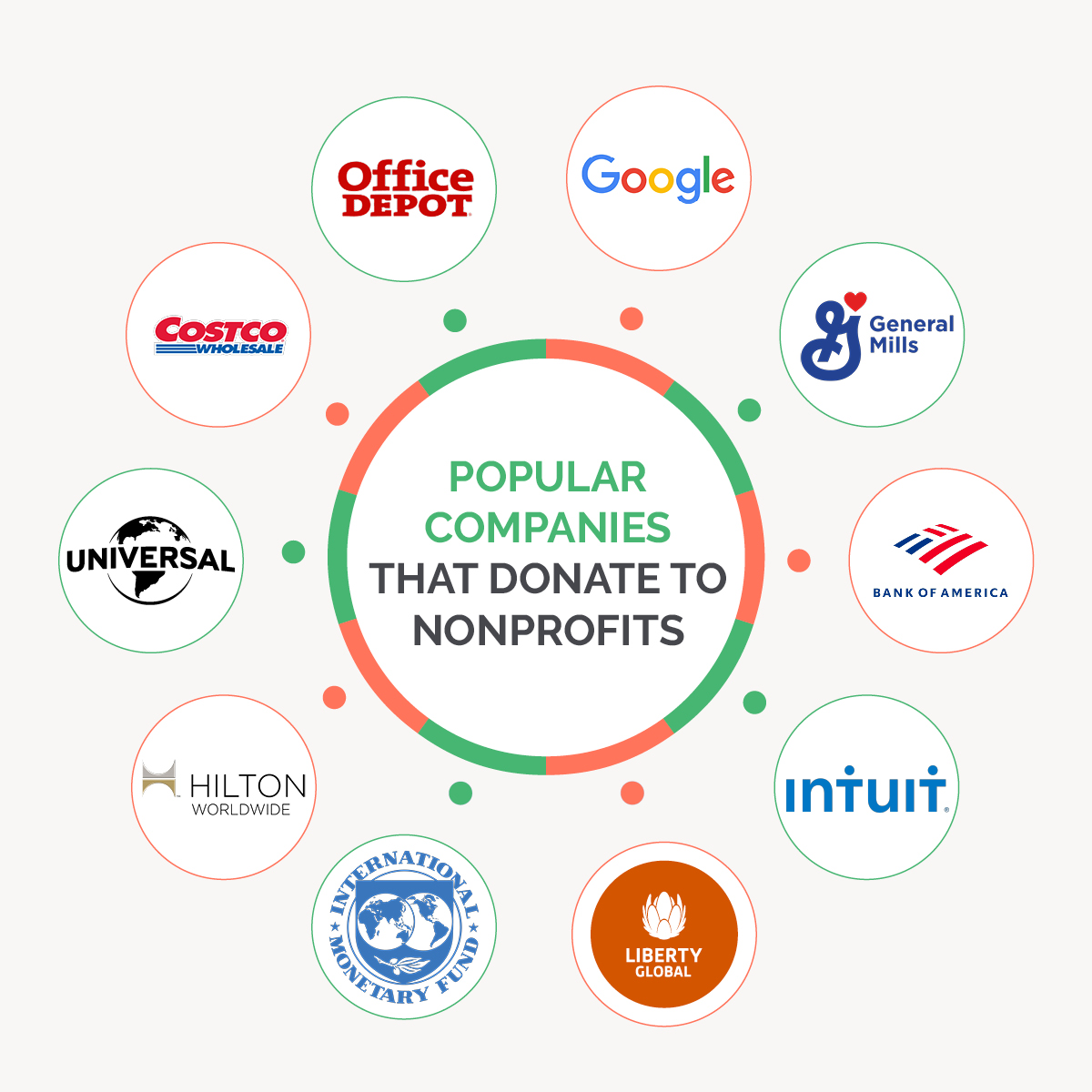Exploring the Diverse Features and Duties of a Nonprofit Firm in Dealing With Social Issues and Supporting Adjustment
Not-for-profit agencies serve as essential representatives of modification within culture, tackling a myriad of social problems via complex methods. Their obligations extend past simple solution provision; they involve in campaigning for, source mobilization, and neighborhood outreach, often acting as a bridge between marginalized populaces and essential services.
Comprehending Nonprofit Company Roles
The effectiveness of nonprofit agencies hinges on a clear understanding of their varied functions within culture. Not-for-profit firms commonly function as service companies, providing important programs and resources to underserved populaces.
In addition, nonprofits play a vital duty in campaigning for, raising awareness and affecting policy decisions that impact their communities. By involving in research and public education, these companies help form public discourse and advertise notified decision-making - nonprofit agency. They additionally work as systems for volunteerism, activating area participants to contribute their time and abilities towards cumulative objectives
Additionally, nonprofit companies commonly act as conveners, combining diverse stakeholders to foster partnership and collective effect. This joint technique enhances their capacity to attend to complex social issues effectively. Understanding these multifaceted functions is essential for taking full advantage of the potential of nonprofit firms in developing lasting social modification and boosting total community well-being.
Area Engagement and Outreach
Reliable area engagement and outreach are basic parts of nonprofit agencies' strategies to promote links and build depend on within the communities they serve. These initiatives focus on understanding neighborhood demands, advertising understanding of readily available resources, and encouraging participation in programs developed to deal with social concerns. Not-for-profit companies utilize a variety of approaches to involve with neighborhood participants, such as workshops, informational sessions, and collective events.
Outreach efforts serve to reinforce partnerships with varied populaces, especially marginalized groups who may encounter barriers to accessibility. By utilizing culturally relevant interaction approaches and leveraging local partnerships, nonprofits can enhance their visibility and demonstrate their commitment to neighborhood empowerment. This strategy not just cultivates a sense of belonging but likewise increases the probability of continual interaction.
Additionally, efficient neighborhood interaction goes past simple participation; it involves actively listening to community members' responses and incorporating their understandings into program advancement. This collaborative process makes certain that the solutions used are receptive, pertinent, and tailored to the one-of-a-kind challenges encountered by the area. Ultimately, fostering strong connections through involvement and outreach can result in more impactful treatments and a higher collective effort toward advertising favorable social change.
Advocacy and Policy Influence
Advocacy acts as an important system for nonprofit agencies to influence public policy and drive systemic change. By leveraging their knowledge and community understandings, these companies can properly represent marginalized populations and address pressing social problems. Nonprofits take part in advocacy with various methods, including public recognition projects, grassroots mobilization, coalition structure, and straight lobbying of policymakers.
Through these initiatives, nonprofit firms aim to shape regulations and plan frameworks that line up with their goal and the requirements of the communities they offer. They perform research study, gather data, and share compelling narratives to highlight the necessity of details concerns, making certain that decision-makers are informed and inspired to act. This process not only magnifies the voices of those impacted by social oppressions however additionally cultivates an extra comprehensive and equitable policymaking setting.
Furthermore, campaigning for efforts frequently look for to create lasting architectural adjustments, dealing with source instead of simply alleviating signs. By prioritizing policy impact, nonprofit agencies add to a wider understanding of social obstacles and promote options that can bring about sustainable improvements in social health. Inevitably, advocacy is essential to the transformative duty nonprofits play in producing a simply and equitable society.
Fundraising and Resource Administration
Nonprofit agencies rely upon robust fundraising and source monitoring methods to support their campaigning for initiatives and maintain their missions. Efficient fundraising is crucial for making sure the accessibility of funds essential to carry out programs and activities that deal with pushing social visit homepage issues. This process often entails expanding income streams with gives, private contributions, corporate sponsorships, and fundraising occasions. By utilizing a multi-faceted method, nonprofits can minimize the risks related to reliance on a solitary funding resource.
Source monitoring is similarly vital, as it includes the calculated allowance of both human and monetary sources to make the most of impact. Nonprofits should establish spending plans that line up with their objectives while making certain openness and liability to stakeholders. This includes regular tracking of expenditures and readjusting strategies as needed to optimize source usage.

Partnership and Partnerships
While several organizations pursue their objectives independently, cooperation and partnerships can substantially boost the effectiveness of not-for-profit companies. By interacting with other nonprofits, federal government entities, and personal field companies, nonprofits can merge sources, share know-how, and intensify their impact on social concerns. Collaborative initiatives commonly lead to cutting-edge solutions that may not be achievable individually, leveraging the staminas of each companion to deal with complicated difficulties.

Inevitably, efficient cooperation requires clear communication, shared objectives, and common regard among companions. By embracing a participating strategy, nonprofit companies can produce lasting networks that not just address instant social issues yet additionally contribute to long-lasting systemic adjustment, promoting a more equitable society. Through collaboration, nonprofits can grow and maximize their potential for significant influence.
Final Thought
Not-for-profit firms offer as important entities in fostering and resolving social problems modification within neighborhoods. Eventually, the diverse duties of nonprofit firms significantly add to the search of social justice and the improvement of area health.
Understanding these multifaceted duties is important for making best use of the potential of not-for-profit firms in creating sustainable social adjustment and improving total about his area health.
Reliable neighborhood involvement and outreach are basic parts of nonprofit companies' techniques to construct and cultivate links count on within the communities they serve. By working together with other nonprofits, government entities, and personal field organizations, nonprofits can pool resources, share competence, and enhance their impact on social problems.Not-for-profit companies serve as critical entities in fostering Our site and addressing social issues modification within communities - nonprofit agency. Inevitably, the diverse functions of not-for-profit agencies significantly contribute to the search of social justice and the enhancement of community well-being